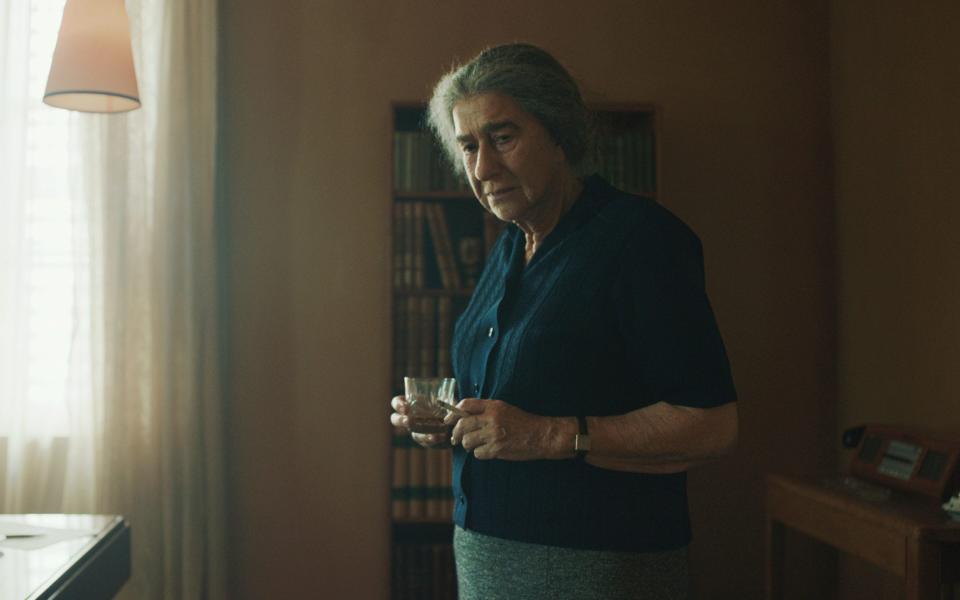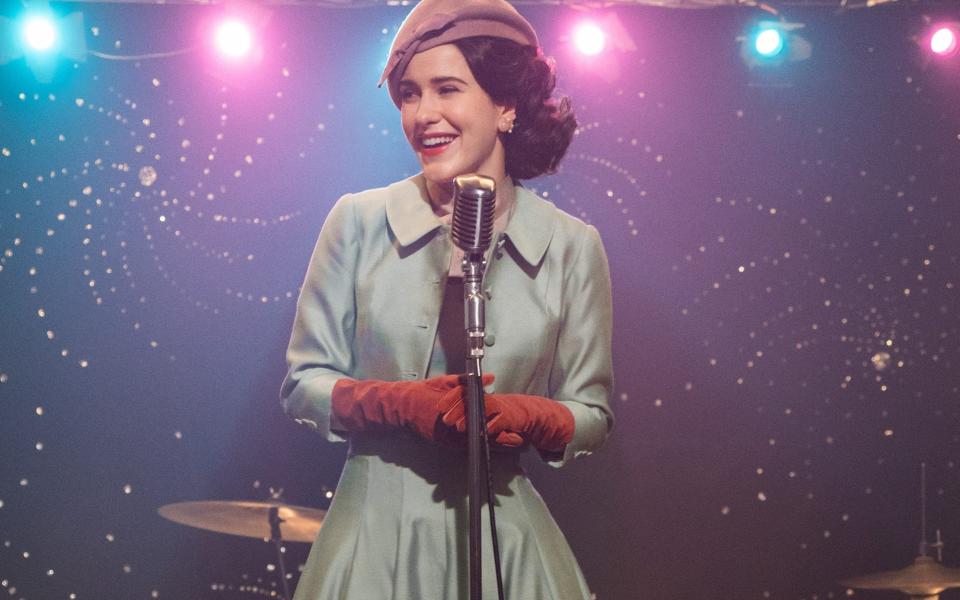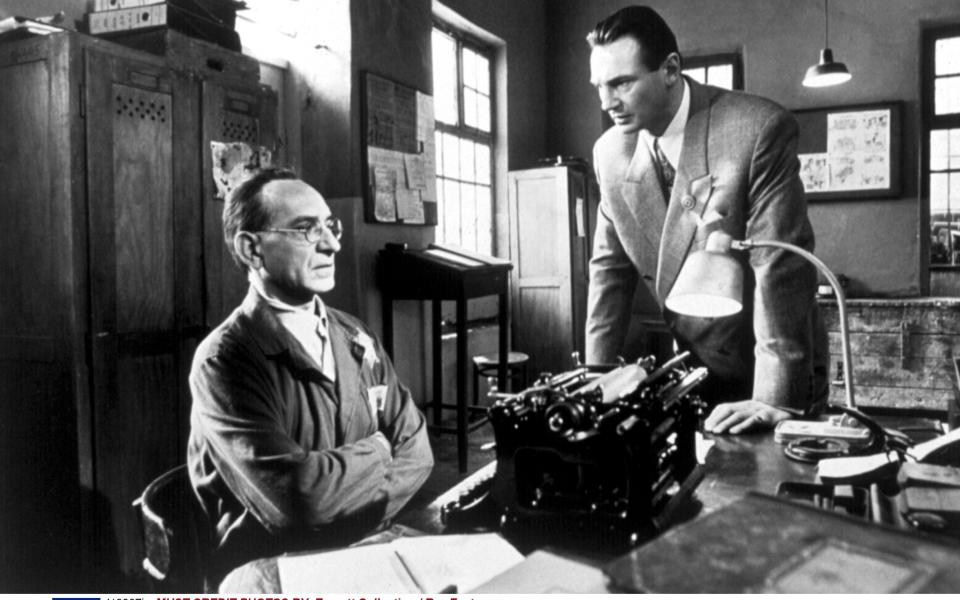Why ‘Jewface’ is the only ‘erasure’ Hollywood doesn’t care about

Should a non-Jew play a Jew? This strange debate, which I think is a proxy for something else – Jewish anxiety, the Jewish place in the world? - erupts regularly. Last October Sarah Silverman, the American-Jewish comic, called the tendency “Jewface”, as if it were an offence similar to “Blackface”. It happens, she said, “when a non-Jew portrays a Jew with the Jewishness front and centre”.
More recently, Maureen Lipman wondered if Helen Mirren should play the Israeli Prime Minister Golda Meir in a forthcoming film because, again, “the Jewishness of the character is so integral”. Yet Meir was a Ukrainian Jew. Wouldn’t a Ukrainian actress have as much insight into her as an Anglo-Jewish actress, such a Lipman?
Tamsin Grieg, a practising Christian, agrees with Lipman, and rebuked herself for playing a Jew in Friday Night Dinner. But the playwright Patrick Marber, who directed Tom Stoppard’s Leopoldstadt, contradicted all, saying, “Lived experience” – the justification for casting parts only within an ethnicity – “is sort of a denial of what creativity is and denies the actor the fundamental challenge and right to become someone else to impersonate another human being from another time, from another culture, from another religion, and another sexuality and other gender.”
I think this is true, but it happens often, and it is worth investigating. Silverman also mentioned the gentile Felicity Jones as Ruth Bader Ginsberg in On the Basis of Sex. There is also Rachel Shennott in Shiva Baby, Rachel McAdams in Disobedience, Agnes O’Casey in Ridley Road, and Rachel Brosnahan in The Marvelous Mrs Maisel.
There are two problems when casting non-Jews as Jews, and two tendencies: no Jew or over-Jew. The first is an erasure of Jewish characteristics. There is nothing Jewish in Rachel’s Brosnahan’s Mrs Maisel, who seems only a non-Jew adrift in Jew World (here, New York City). Is that how the viewer feels? Is that the very purpose of her presence? Would a Jewish actor be too – well, Jewish – to attract an audience and, if so, who is this art really for?

The second tendency is an over-emphasis on Jewish characteristics: parody and stereotype. So, there is The Lehman Trilogy, in which Simon Russell Beale played Chaim Lehman and fell to the Jew Wobble: what David Baddiel calls “Nebbish Being”. It made me so queasy I left the theatre. Simon Russell Beale has nothing to teach me about Jewishness, but it is not for me. What he has to teach non-Jews, I cannot say.
There are very few important performances of Jews by Jews in film, though there are many brilliant peripheral ones: Lee Strasberg as Hyman Roth in the Godfather Part II for instance. There is Zero Mostel as Max Bialystock in The Producers, alongside Gene Wilder as Leo Bloom.
You might mention Woody Allen, but he is no actor, and his films are not fiction; the best performance in all his work is Martin Landau as Judah Rosenthal in Crimes and Misdemeanours. These aside, the performances don’t exist to be judged. I wonder if, having been so essential to the creation of Hollywood – their American dream in the New World – Jews didn't want to look inward, or backwards. Many Jews in Golden Age Hollywood avoided playing Jews – why remind people? – and in any case the roles were thin.

Instead, we are expected to believe, in Cecil B de Mille’s The Ten Commandments, that Charlton Heston, as Moses, is a Bronze Age Jew. (No Jew.) I love his performance. It isn’t accurate, of course – it is ludicrous - but it tells us a lot about 1950s America. Or, later, that John Turturro is a rabbi in The Plot Against America (over-Jew) or that Al Pacino, or all people, is a Nazi hunter in Hunters (over-Jew again. What else?).
We are expected, more recently, in McMafia, to believe that James Norton as Alex Godman is an authentic child of Russian Jews, when he gives no hint of it. (No Jew, again.) It is a watchable thriller, but of Jewish culture it has nothing, and I wonder, again, if this is deliberate; Godman’s Jewishness is meant to be no more significant than his kitchen, or his wristwatch, or his suit.
Sometimes it is disastrous enough to be funny, and that is valuable by itself if you treasure Jewish humour: watch Kenneth Branagh playing the Woody Allen character (over-Jew, though he was self-aware enough to cringe) in Celebrity. Laurence Oliver played Jews in The Jazz Singer and The Boys from Brazil. Then he played a Nazi dentist in Marathon Man without changing his accent. But the most grievous recent example is Mank, a film about Herman J Mankiewicz, who co-wrote Citizen Kane with Orson Welles. Mank is played by Gary Oldman.

Set aside the fact that Oldman made his feelings about Jewish people clear when he defended Mel Gibson’s notorious anti-Semitic tirade of 2002 to a police officer. “Mel Gibson is in a town that's run by Jews, and he said the wrong thing because he’s actually bitten the hand that I guess has fed him – and doesn’t need to feed him anymore because he’s got enough dough,” he said. But he doesn’t understand Herman Mankiewicz.
Mank was a second-generation Jewish immigrant, an outsider by instinct and situation, a man from two cultures trying to navigate them both and failing utterly. (Though he did, in his misery, help to invent cinema. If you suffer in your own world, you are well-placed to create another one).
I am certain that a non-Jewish actor with empathy and sincerity could have played Mank brilliantly, but Oldman didn’t. His Mank was a soak with no hinterland. (In fact, Mank was obsessed with gaining his father’s approval. Can Oldman not pick up a book, as Mank would?) The film was a dud. Orson Welles (Tom Burke) seems more plausibly Jewish, and that is absurd.
Then there is The Marvelous Mrs Maisel, a story of a female Jewish comic – like Joan Rivers, but so unlike Joan Rivers – rising to fame in the 1950s and 1960s. It is enjoyable, but desperately, morally flawed: the truth is that no woman as lovely as Rachel Brosnahan, or as happy as Mrs Maisel, would ever be a comic because comic walks to the microphone in the dark for self-acceptance.
Mrs Maisel is that entirely invented thing: a cheerful Jewish comic. She makes as little sense as Mank, though Tony Shalhoub, as her Jewish father, is superb. And that, of course is why – all these terrible performances I mention aside – Patrick Marber is right, and Maureen Lipman is wrong. Shalhoub is perfect as Mr Maisel. He has the ease and the unease co-existing together. He has the irony. Rod Steiger, too, was superb in The Pawnbroker and The Chosen; he is probably the leading interpreter of Jewish tragedy in cinema, and, though he was not a Jew, I treasure his performances.

Ben Kingsley was likewise perfect as the accountant Yitzhak Stern in Schindler’s List. I cannot imagine anyone giving a better performance of efficiency amid terror, but Kingsley has Jewish and Indian ancestry. Perhaps Steiger just had peculiar empathy. Shalhoub, meanwhile, is of Lebanese descent. None, I suspect, need to be told what an outsider is; what fear is.
So, it does happen, though not often enough. But you could say that about all art: most of it is mediocre, and people must be allowed to fail. Shalhoub aside, Mrs Maisel is a fairy tale, and I am certain that this is deliberate.
Which brings me to the final problem of Jewish representation in theatre, and on film: its unreality. It is Jewish culture as a fairy tale: something to comfort us. Jewish culture barely exists. We know this, and we know too where the missing Jewish actors and their masterpieces are. There is a mass of work on the Shoah, which, increasingly, seems like the only Jewish culture in which Jews are always welcome to appear.
Even so, Jews are not under-represented in the arts, and is dishonest to suggest we are. “Jewface” is not “Blackface”, and to say it is only contradicts the authenticity we presumably seek. Patrick Marber says, “I don’t like quotas,” and I agree. Dislike of “Jewface” is, at heart, a cry of fear. It is something else too: a sign that the Jewish debate of all the ages – look inwards or outwards? – still thrives, and I can’t think of anything more Jewish.

